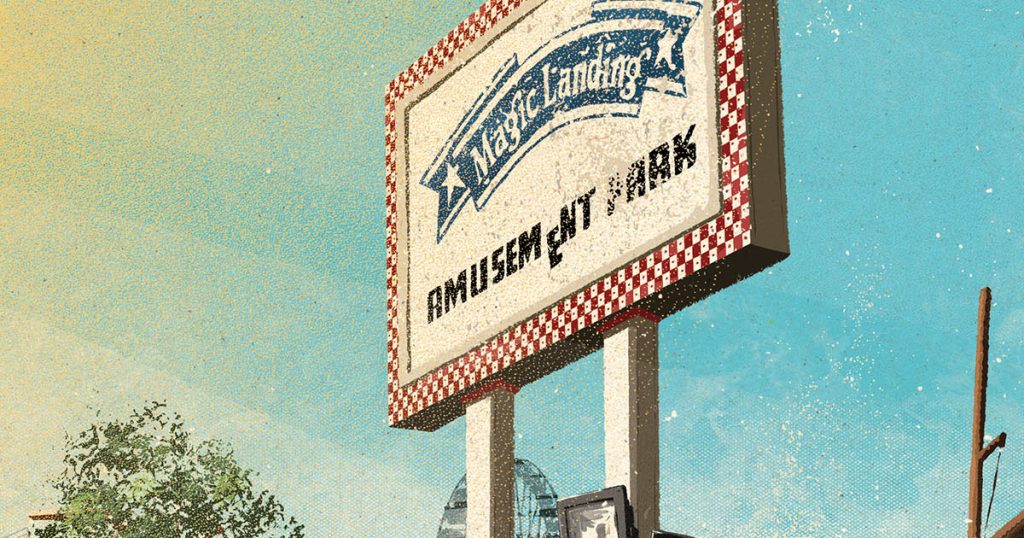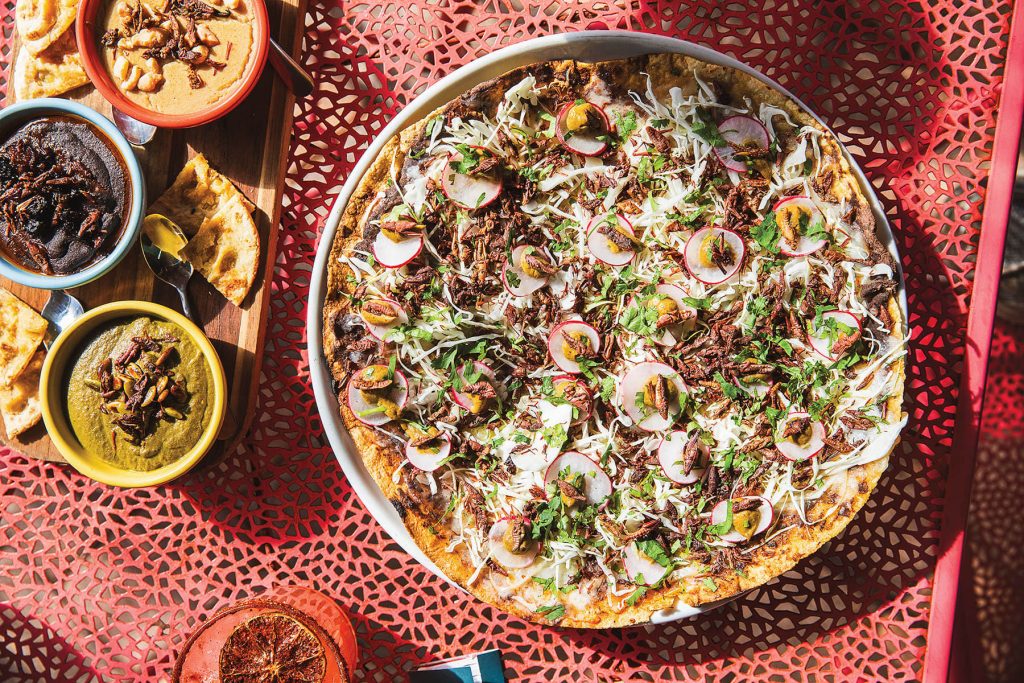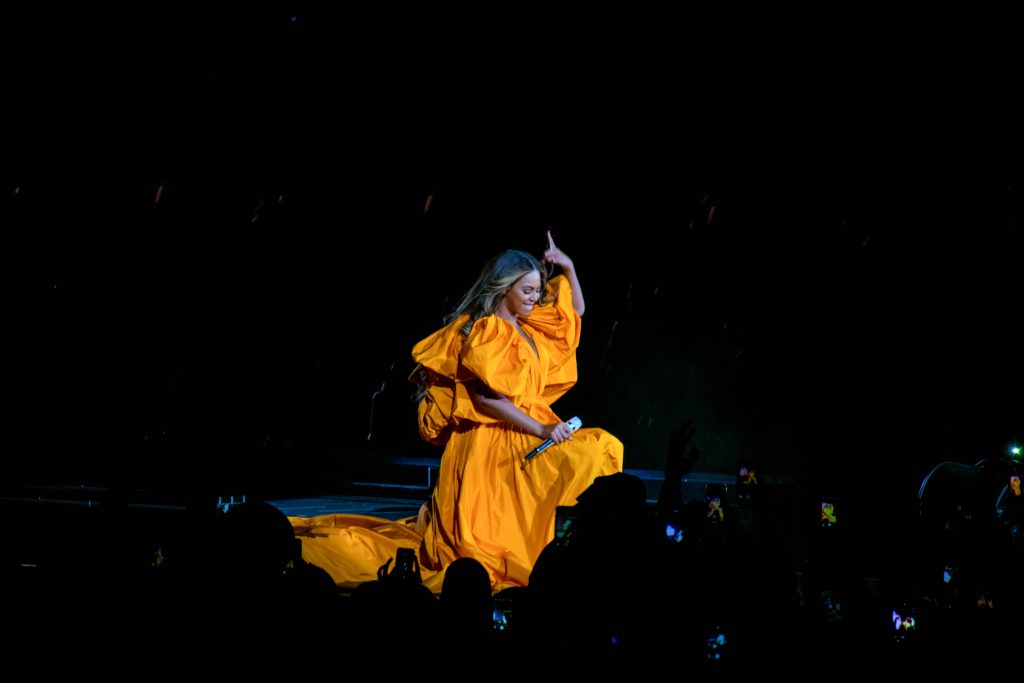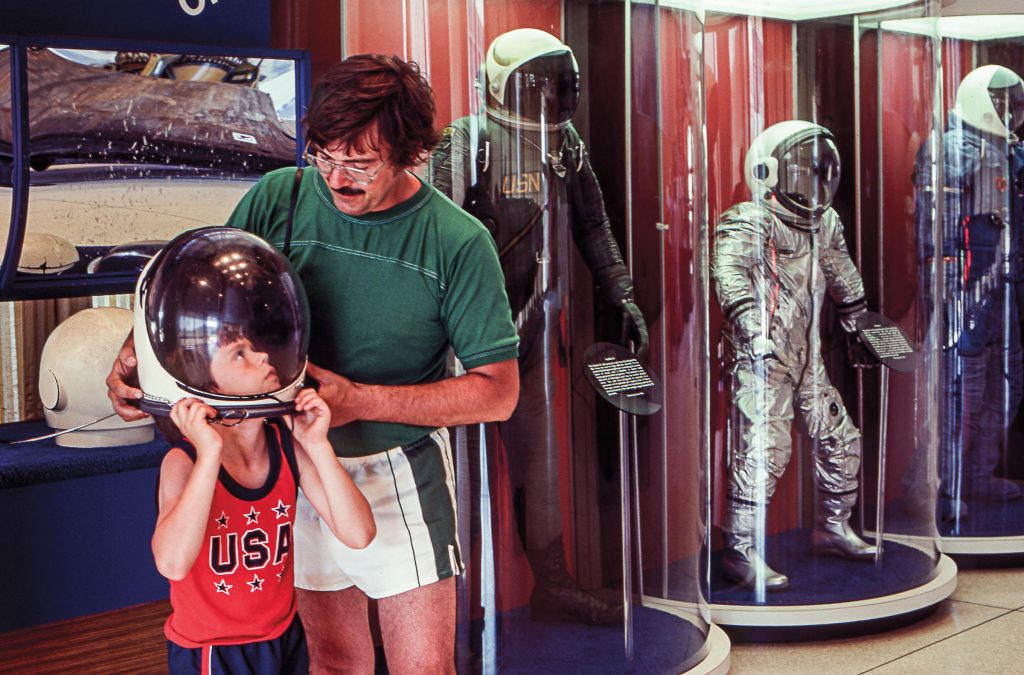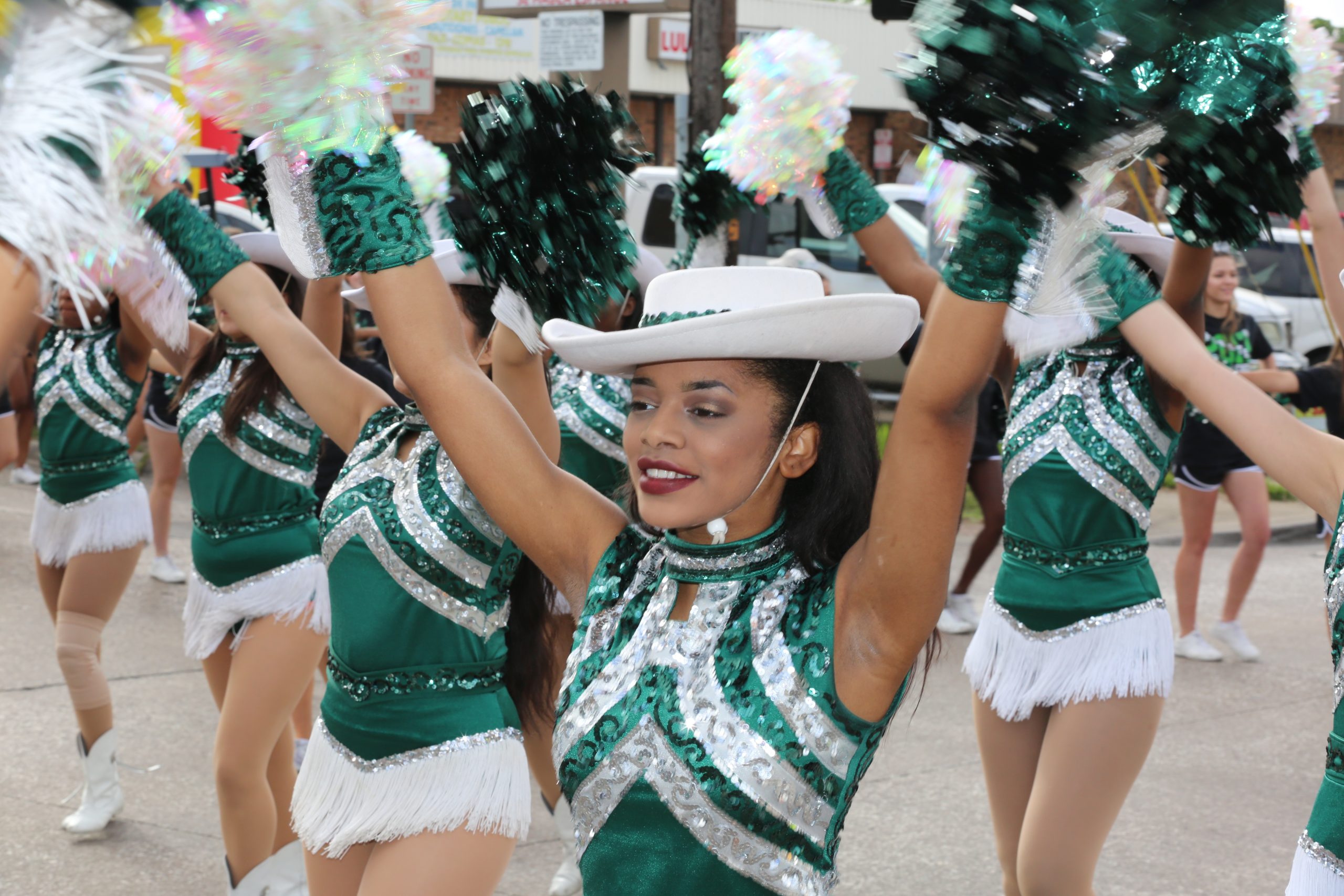
A member of Mesquite Poteet High School marches in the annual Mesquite Rodeo Parade. Photo courtesy Visit Mesquite
Growing up in Mesquite, Jennie Blackwood Turnell remembers the city’s annual Rodeo Parade as being “a big deal.” Schools would cancel classes for the parade and students would receive free tickets to the rodeo. “When we were kids, we were either going to the parade or we were in it,” she says, adding she marched as a member of Mesquite High School’s band.
Mesquite Rodeo Parade
When:
April 6; 10 to 11:30 a.m.
Parade Route: The 1.5-mile loop starts at Belt Line and Newsom roads and ends on Galloway Avenue at New Market
On April 6, the tradition continues. High school bands will march, drill teams will twirl, floats will be decked out with a solar eclipse theme, and horses with their mounts in western garb will clip-clop through downtown as part of the 66th annual Rodeo Parade—a reminder that the suburban city east of Dallas is the official Rodeo Capital of Texas.
The parade and Mesquite’s rodeo heritage are intertwined: The first “parade” in 1957 consisted of a local rodeo’s new owners riding horses into town to promote their recently acquired enterprise. The new ownership’s principal investor was a legend of his era, Jim Shoulders, who at the time had won more than half of his 16 rodeo world titles. Shoulders helped bankroll a Dallas-born bull-riding protégé named Neal Gay, who then scraped and scrambled through lean years with his wife, Kay, to establish Mesquite Championship Rodeo as one of the nation’s foremost months-long competitions, as opposed to one-time rodeos that moved seasonally from city to city. The Gay family’s ownership lasted more than four decades.
Gay died in 2022 at his ranch in nearby Terrell at the age of 96 as patriarch of a rodeo family that includes son Don, who won even more world bull-riding championships than his dad’s original partner, Jim Shoulders. The bronze life-size statue of Gay on a horse still welcomes visitors to the Mesquite Arena complex, which now includes an air-conditioned 6,000-seat indoor stadium, a hotel, and an adjacent convention center.
In 1993, Mesquite Championship Rodeo was the impetus for naming Mesquite as the Rodeo Capital of Texas. Turnell’s father, Bill Blackwood, introduced Texas House Resolution 14, noting that at the time there were more performances held there annually than any other rodeo in the nation and calling it “undeniably the most famous rodeo of all.” Gov. Ann Richards made it official when she signed the legislation, 16 years after lawmakers adopted rodeo as Texas’ official sport.
The story behind the resolution is both poignant and inspiring. Blackwood, who was serving his fourth term as representative, was dying of cancer. He would be “stumbling, but he would be in Austin” against doctors’ advice, his former assistant Elvira Reyna told the Associated Press at the time of his death. After introducing legislation earmarking benefits for families of police officers killed in the line of duty and establishing the state’s Law Enforcement Management Institute, the Rodeo Capital designation for his hometown would be his final success.
“I think he wanted to do as much for the city of Mesquite and for the rodeo while he could,” says Reyna, who became the first Hispanic Republican in the Texas House of Representatives when she was elected to succeed her boss. As such, she joined other politicians to ride in Mesquite’s rodeo parade, although she chose convertibles while Blackwood’s favorite was the city’s fire trucks.
Reyna’s sentiment is echoed by both Turnell—“The main thing I remember is that Dad absolutely loved the rodeo,” she says—and her brother, Scott Blackwood. “Dad loved Mesquite. It was No. 1,” he says, explaining why his father would author a resolution designating Mesquite as the official state Rodeo Capital. Even so, neither he nor his sister recall him ever wearing a cowboy hat.
Turnell remembers going to the rodeo a couple times a year. “It was just what you did,” she says. “I remember sitting under the stars and the lights coming on.” Those starry nights ended when the original facility was demolished and replaced by an enclosed arena in 1986, its accessibility helped by the construction of Interstate 635 in the previous decade. Cable television extended its reach, enhanced by Neal Gay’s bull-riding champion son Don, who became a commentator for Mesquite Championship Rodeo national telecasts. By 1998, the arena was air-conditioned and included luxury suites, video boards, and a private club.
In 1999, the Gay-led ownership sold the rodeo franchise and arena and more changes ensued until mega-developer Mehrdad Moayedi, who renovated Dallas’ famed Statler Hilton, assumed ownership in 2018 and then spun off the rodeo to Texas-based Stace Smith Pro Rodeos. The new owner installed a concrete floor to make it a more diversified entertainment venue, expanded parking, upgraded locker rooms, and brought concessions in-house. “We have to build a bigger, better mousetrap,” says Mesquite Arena manager John Auletta.

Dakota Mendez competes in the 2023 final of Mesquite Championship Rodeo. Photo by Evan Crawford, courtesy of Mesquite Championship Rodeo
Bigger and better is needed these days. Competition to attract rodeo fans has become much stiffer in the Dallas-Fort Worth metroplex. Arlington has American Western Weekend at the Texas Rangers’ Globe Field and the Professional Bull Riders World Championship at AT&T Stadium, while Fort Worth has its Stock Show and Rodeo at sleek Dickies Arena and the Stockyards’ Cowtown Coliseum, the site of the world’s first indoor rodeo in 1918 that now hosts weekend rodeo events year-round.
So how does an inner-ring Dallas suburb live up to being Texas’ Rodeo Capital?
Perhaps it’s by hosting a range of rodeo events in addition to the Mesquite Championship Rodeo. That includes the Mini Bull Rider World Championship this fall, which will attract as many as 400 contestants ages 4 to 18 from as far away as Australia; Hip Hop Rodeo, which celebrates Black cowboys; the family ranch competition Iron Sharpens Iron; and several years ago, the Gay Rodeo Association World Finals. “Our designation as Rodeo Capital of Texas today holds true because we fully embrace the rodeo spirit and celebrate the sport with everyone, from all walks of life, ages, and backgrounds,” says Javan Gonzalez, Mesquite’s tourism director. “It’s more than one single rodeo or rodeo weekend.”
That’s especially true with Mesquite Championship Rodeo’s 2024 season, which opens June 1 with post-rodeo concerts each evening. Top rodeo performers, who will include rookies and world champions, accumulate points during the 14-week run and are awarded championship buckles the final week on Aug. 31.
“Our motto is ‘Where Legends Are Born,’” says Travis Wheat, director of Mesquite Rodeo Championship. “That is because Mesquite is not the end destination for cowboys, cowgirls, bucking stock, musical acts, and the like, but it’s the starting point and it will always be here.”
Let It Ride
The forerunner of Mesquite Championship Rodeo was an amateur rodeo grounds in nearby Pleasant Mound, a neighborhood that was annexed in 1950 by Dallas, which refused to grant the venue a permit. It moved eastward, evolving into today’s location of the Mesquite Arena and Mesquite Championship Rodeo. Mesquite’s 1993 official state designation as Rodeo Capital of Texas is grandfathered by the Texas Legislature, which has since established a 10-year expiration for special designations.
